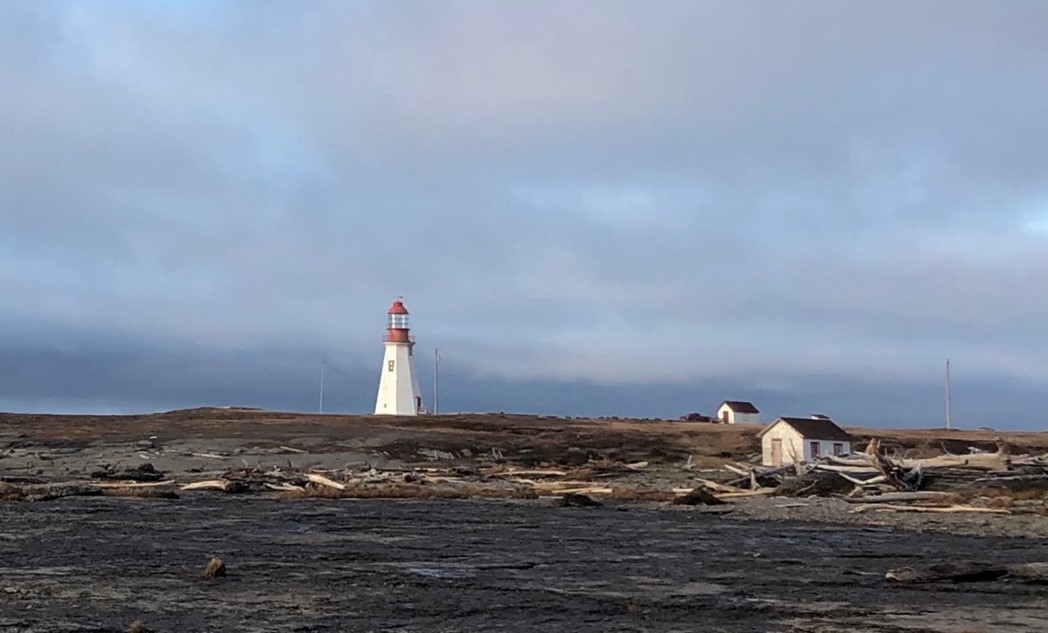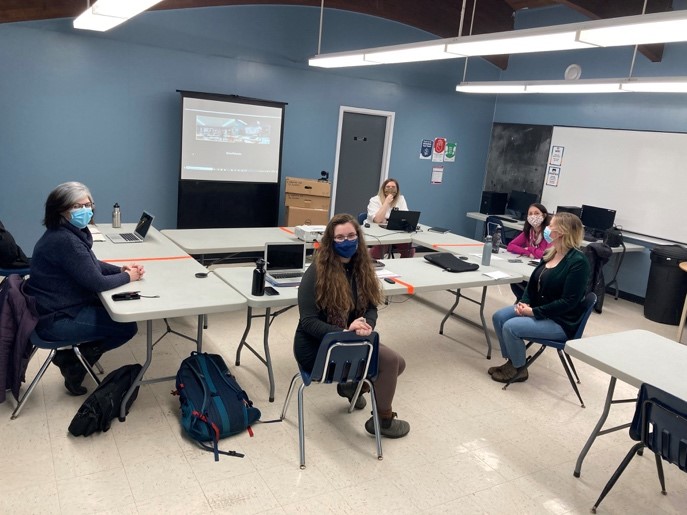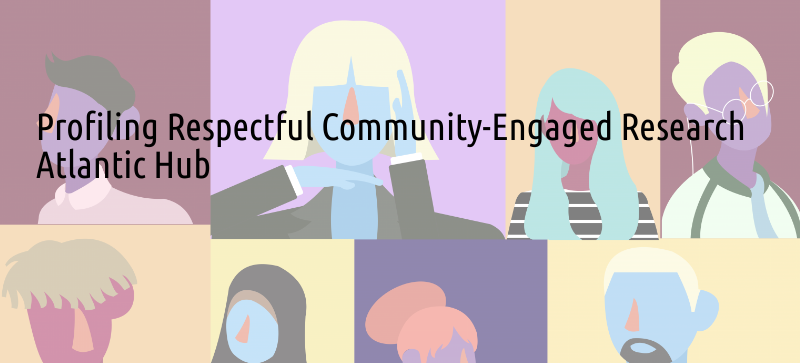By Joan Cranston, Registered Physiotherapist, and Coordinator (BBCHHC), Bonne Bay Consulting and Co-ordinator for the Bonne Bay Cottage Hospital Heritage Corporation in Norris Point, N.L

Symbolic landscape for the GNP Place & the Research collective (Photo provided by Brennan Lowery)
Research is about asking questions and finding answers. Community-based research (CBR) is about communities asking their own questions and finding their own answers and unique solutions. CBR can work alongside philanthropy in rural communities by allowing the community to ask the questions and enabling us to find solutions. CBR and philanthropy both strategically utilize partnerships, networks and relationships to achieve their objectives. CBR plays its own role in advancing community values and objectives by connecting communities to research networks, contacts, and resources. Working alongside academic researchers allows communities to draw upon their knowledge and expertise, and improves access to evidence-based research to support decision-making. For example, the board of the Great Northern Peninsula (GNP) Community Place (https://www.saltwire.com/atlantic-canada/news/local/gnp-community-place-will-be-a-hub-for-health-care-in-port-au-choix-568192/) combined the resources of the GNP Research Collective and the Atlantic PhiLab Hub to engage Samantha Young (https://grenfell-epi.com/profiles/samantha-young/ ), a graduate student, to do background research on Social Enterprise models and approaches to fundraising in rural communities. This background research will form the evidence base on which we can develop a model that will meet the unique needs of the community.

A trip with the GNP collective in Feb 2021: https://grenfell.mun.ca/campus-services/Pages/News-Description.aspx?NewsID=474 (Photo provided by Jenn Buxton)
Rural philanthropy can play a vital role in helping rural communities become more sustainable by unlocking community assets and using them to develop and finance community-based solutions. This can often be a more nimble approach than the usual reliance on government funding and grants. As stated by a board member from the GNP Community Place, “If we build it ourselves then we own it and no one can take it away from us.” CBR allows us to study the unique ways in which this happens, and the differences from one community to the next. CBR is an especially important tool in rural communities where values and objectives can vary widely from one community to the next. Outcomes and goals can be tailored to individual communities more closely through the use of CBR. For example, one possible area for future comparative research is to study the similarities and differences between the communities of Bonne Bay and nearby Port au Choix in terms of approaches to fundraising, characteristics of sponsors and donors, and the relative success of the campaigns. This can be done as on-the-ground action research with the results of each stage being used to inform the next stage.
Some of the questions that we would like to find answers for using CBR methods and approaches are the following:
- How do we truly build projects from the ground up, building on lessons learned from the past, in order to ensure a sustainable future;
- What assets does each community bring to the table – environmental, cultural, historical, economic, etc.;
- Who are the partners and how can we best engage them (including partners from within the philanthropic landscape);
- What are the benefits to the community and how can we meaningfully measure them?
CBR and rural philanthropy are valuable and compatible approaches to finding and developing our own answers to ensure a sustainable future. The Bonne Bay Cottage Hospital Heritage Corporation in Norris Point and the board of the GNP Community Place in Port au Choix are utilizing the academic and community-based resources of the GNP Research Collective to develop unique solutions to the wicked questions facing our rural communities. We welcome feedback on any of these topics of discussion from the wide variety of networks that are connected in this work.
This article is part of the special edition of September 2021: Respectful community engaged research. You can find more information here


